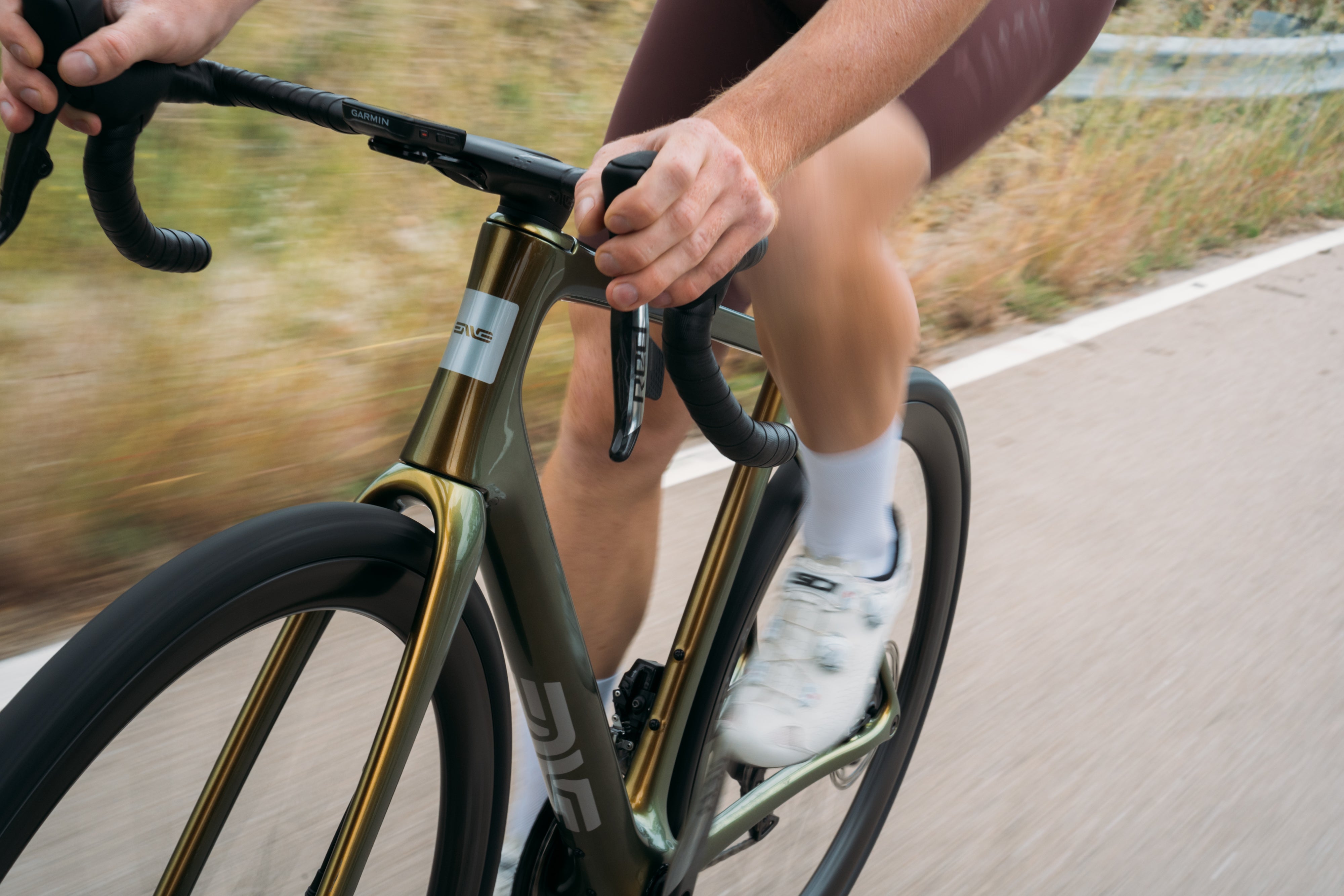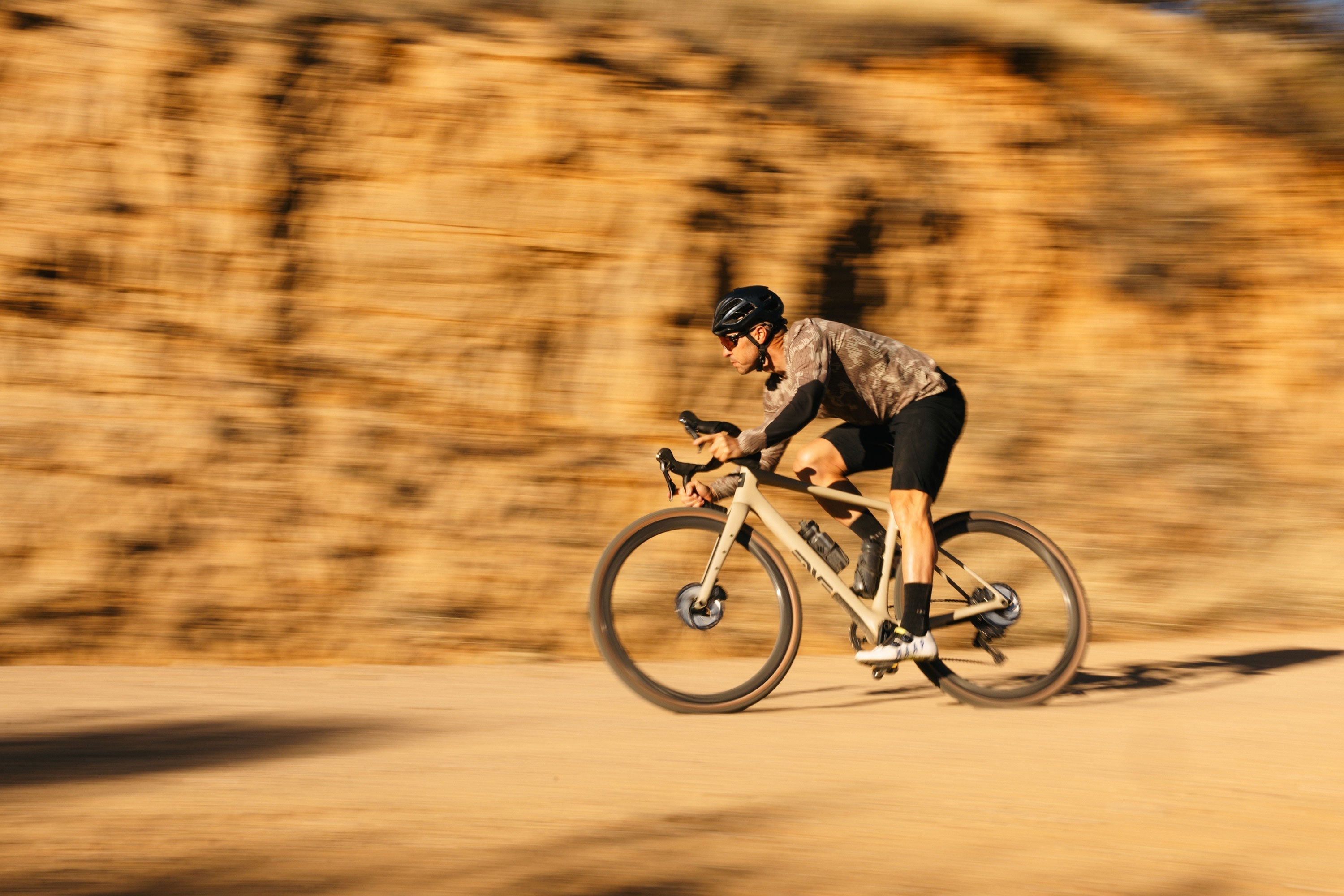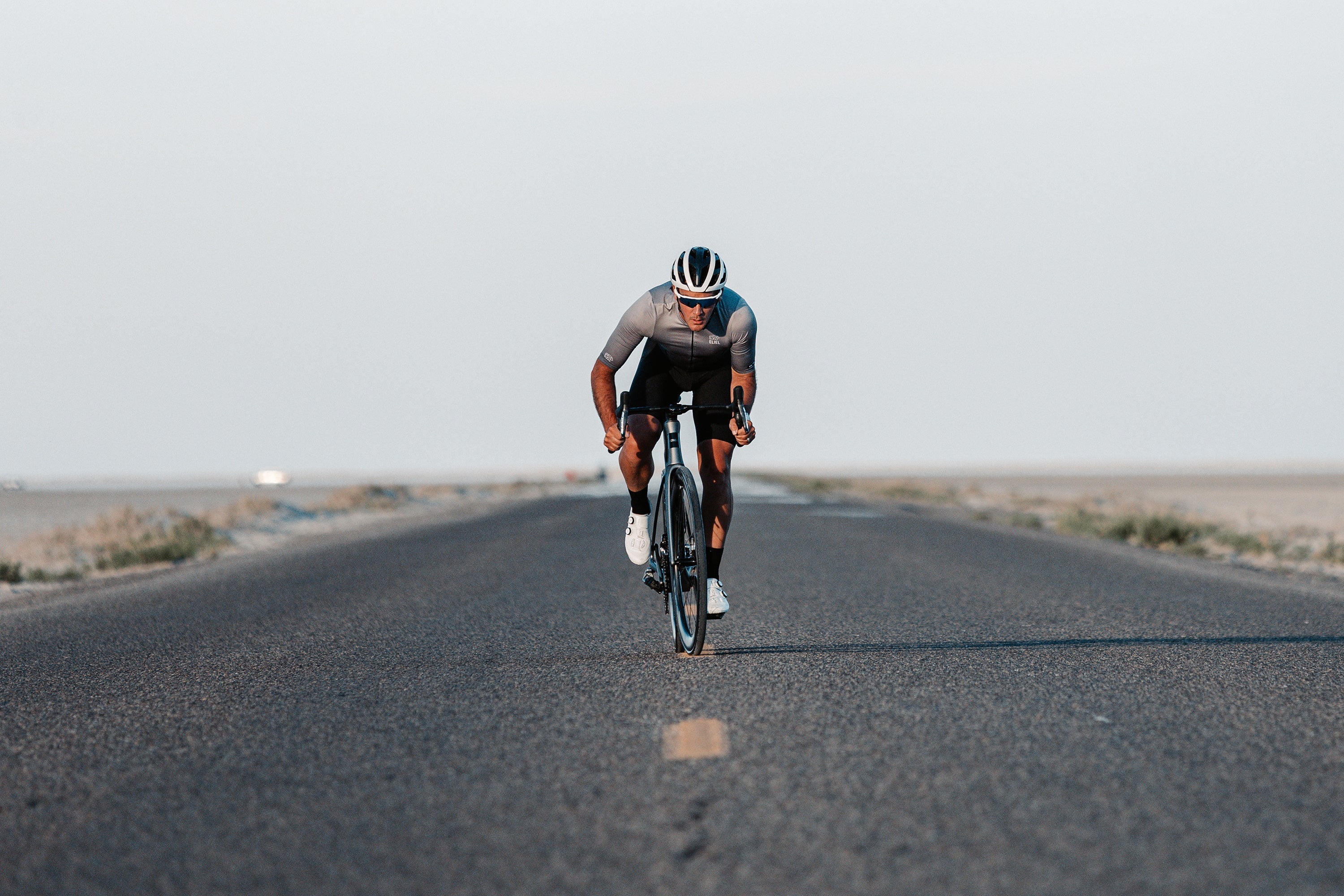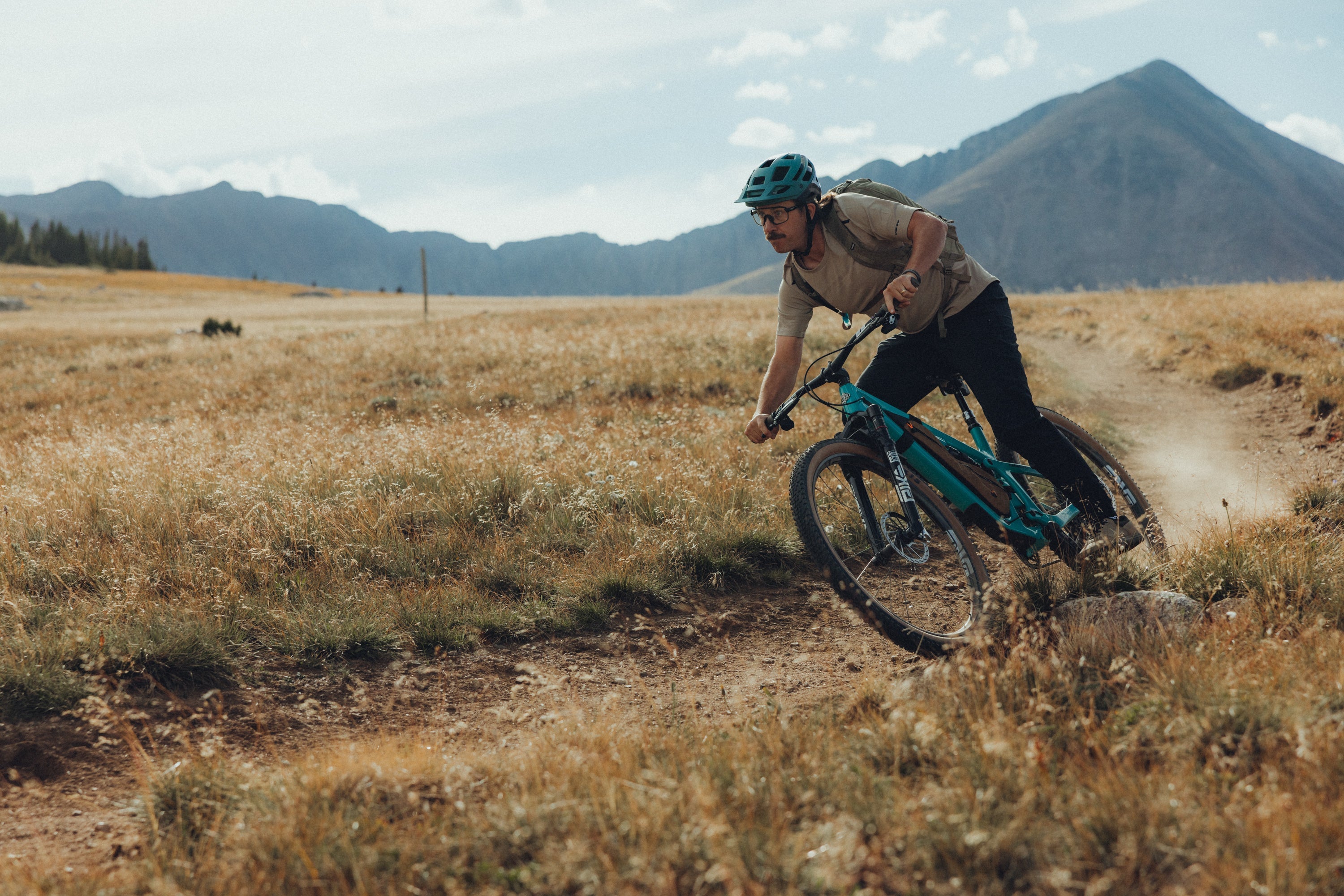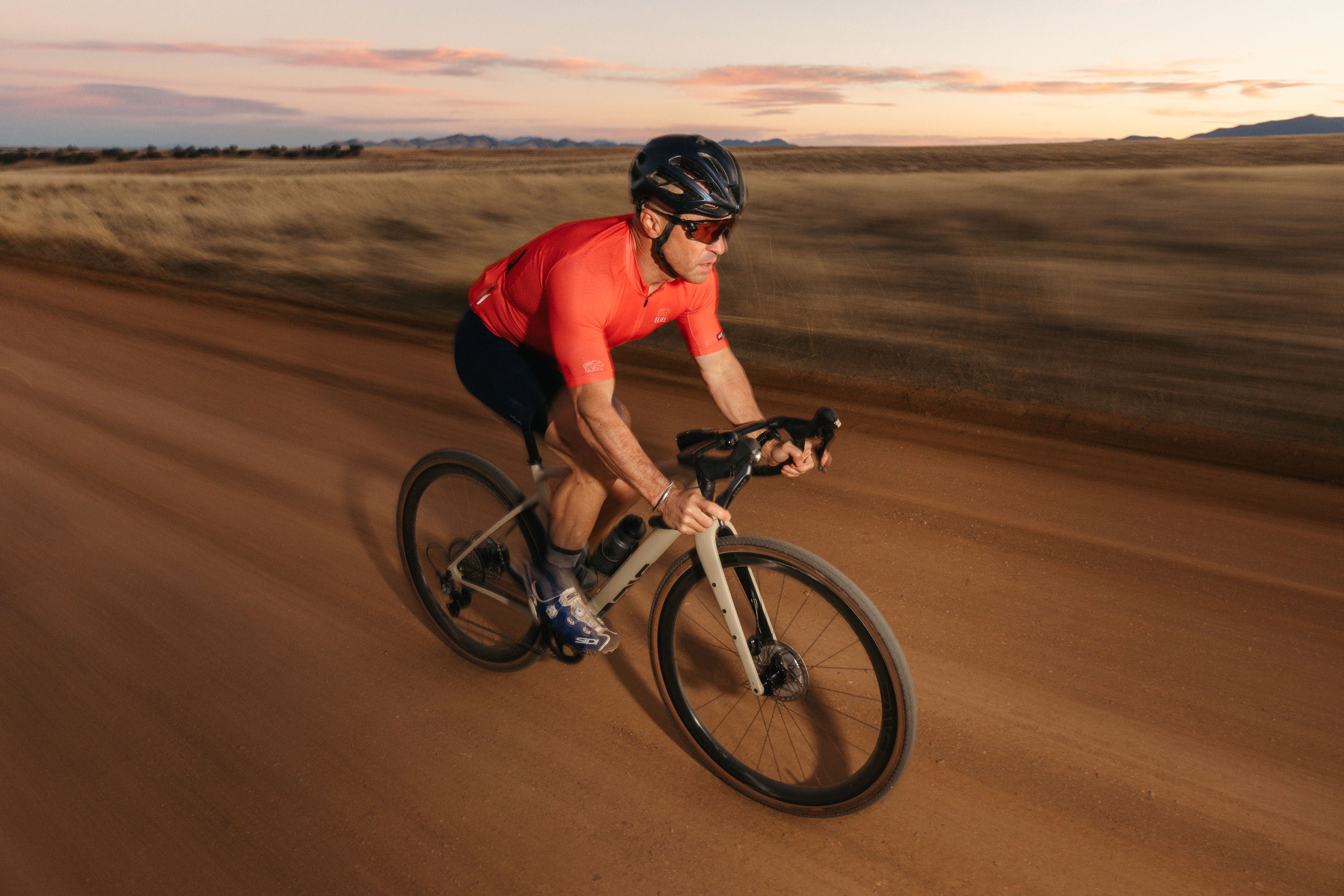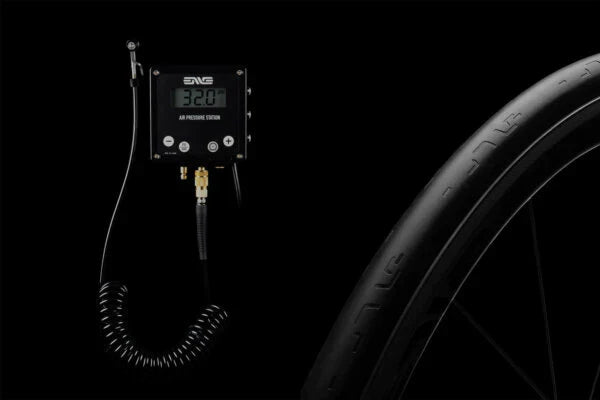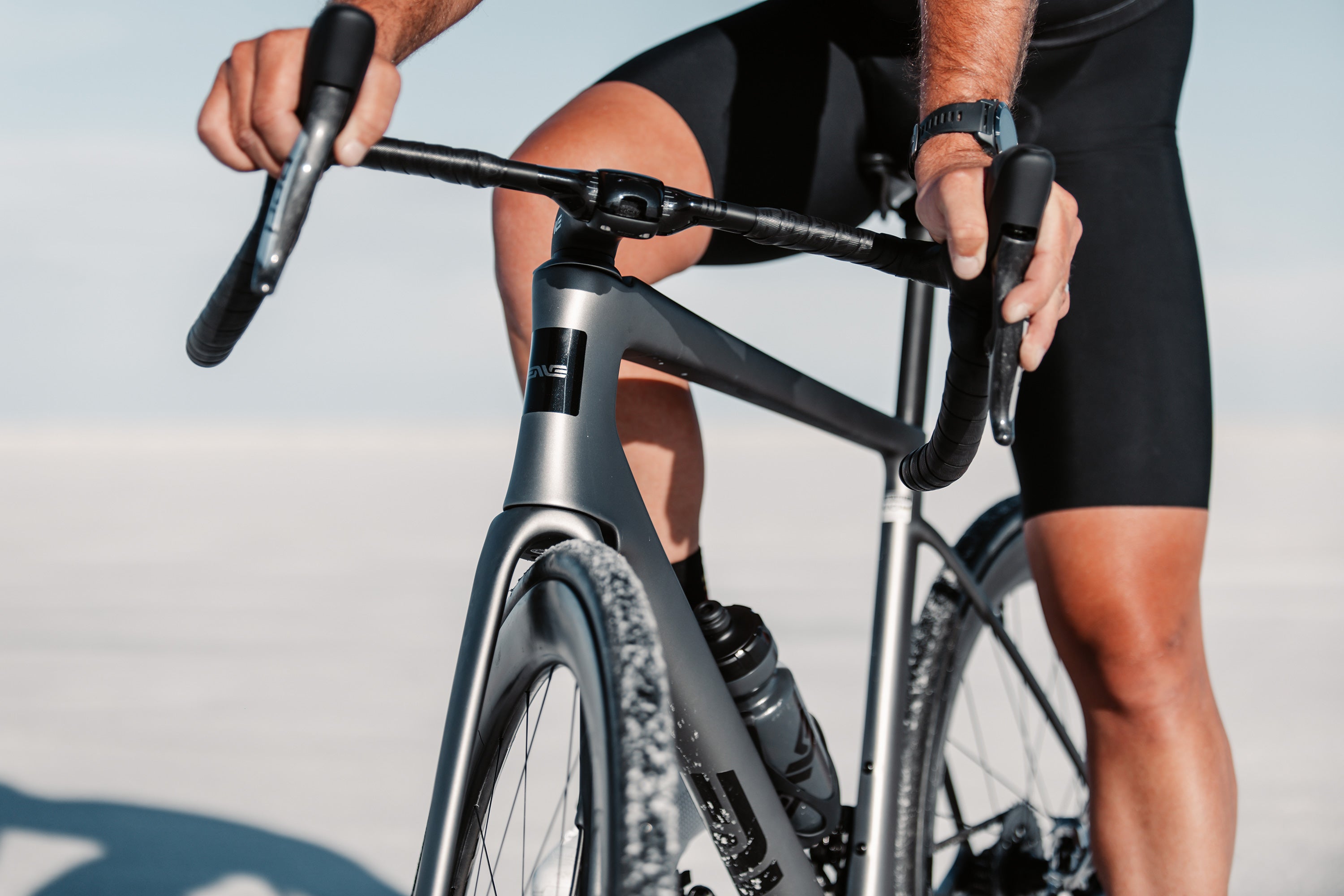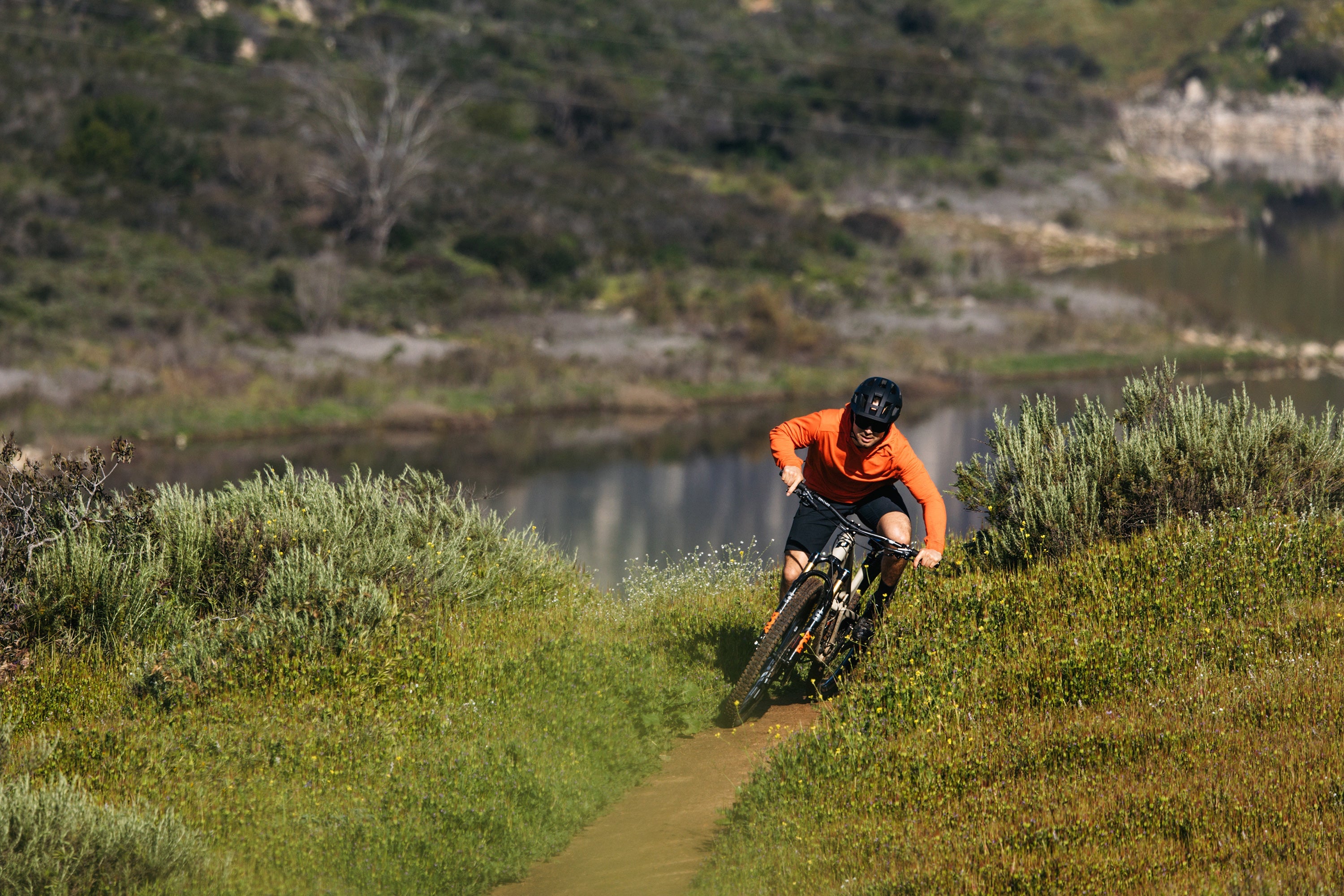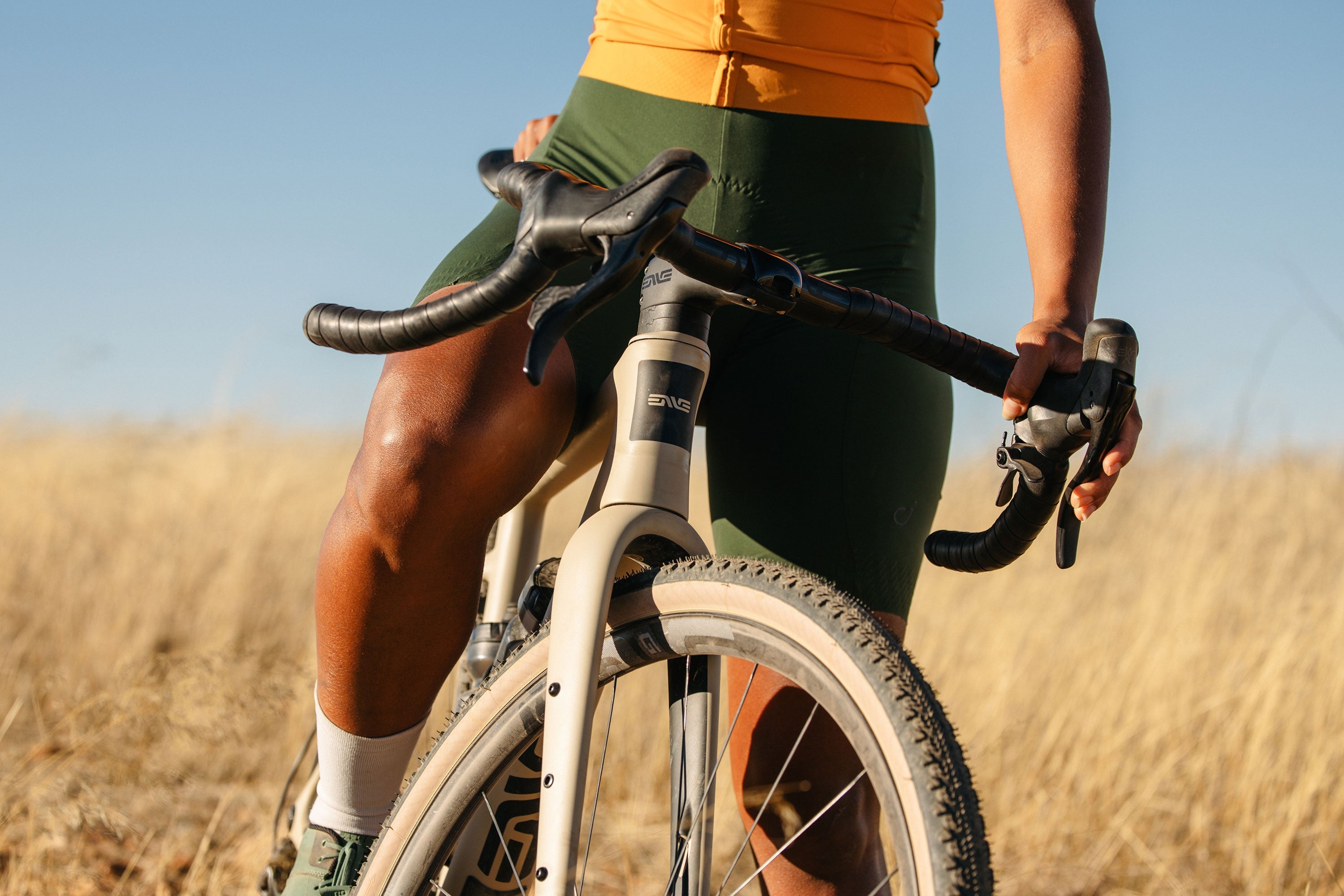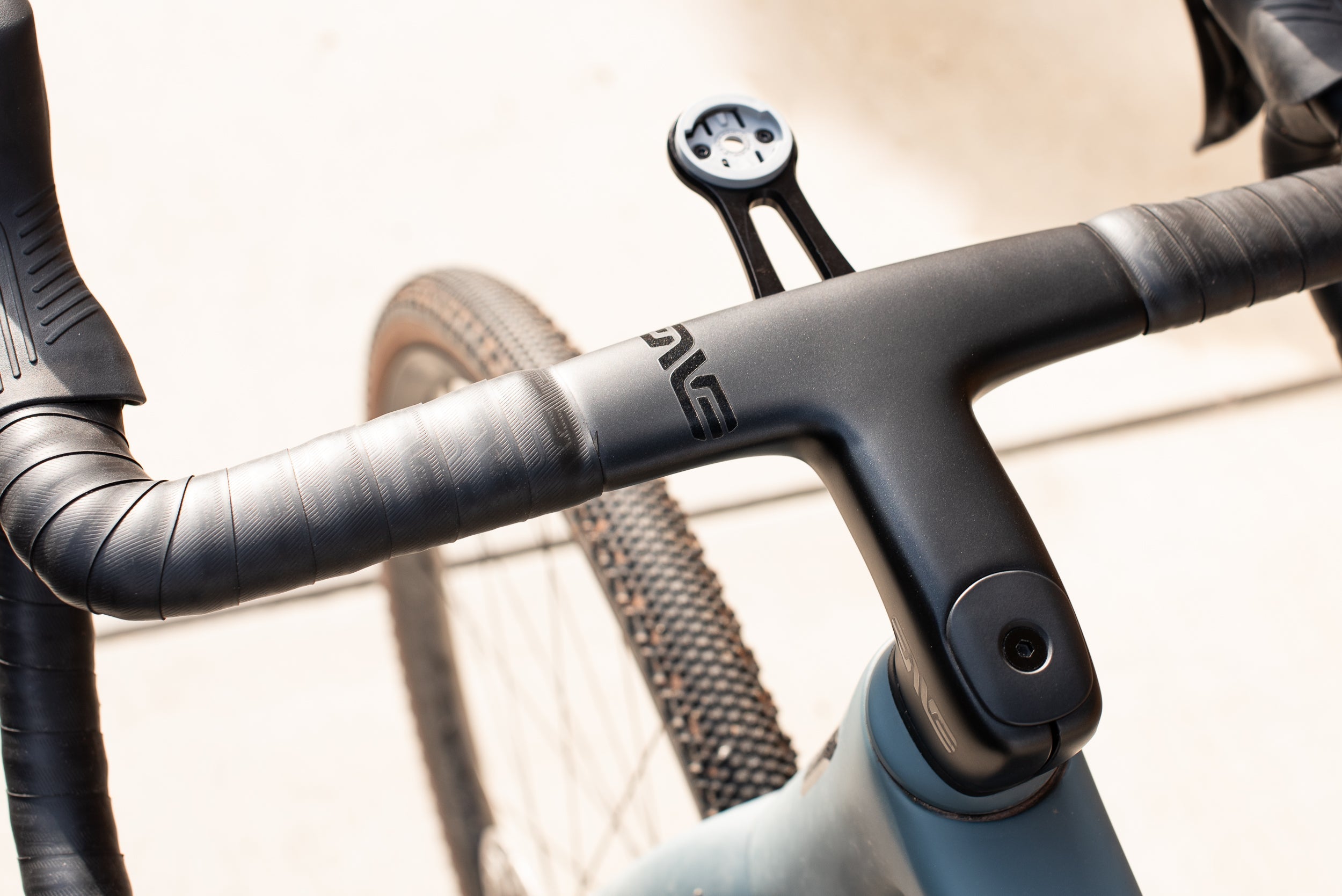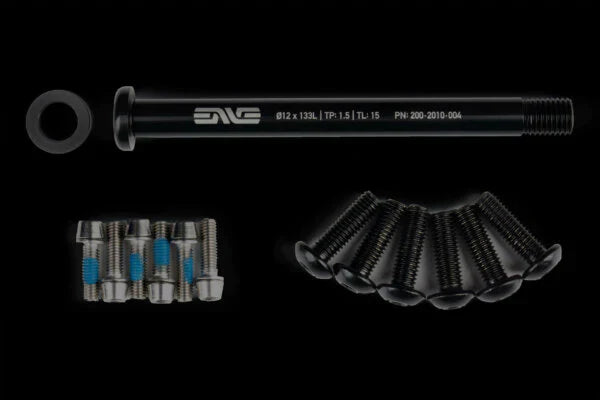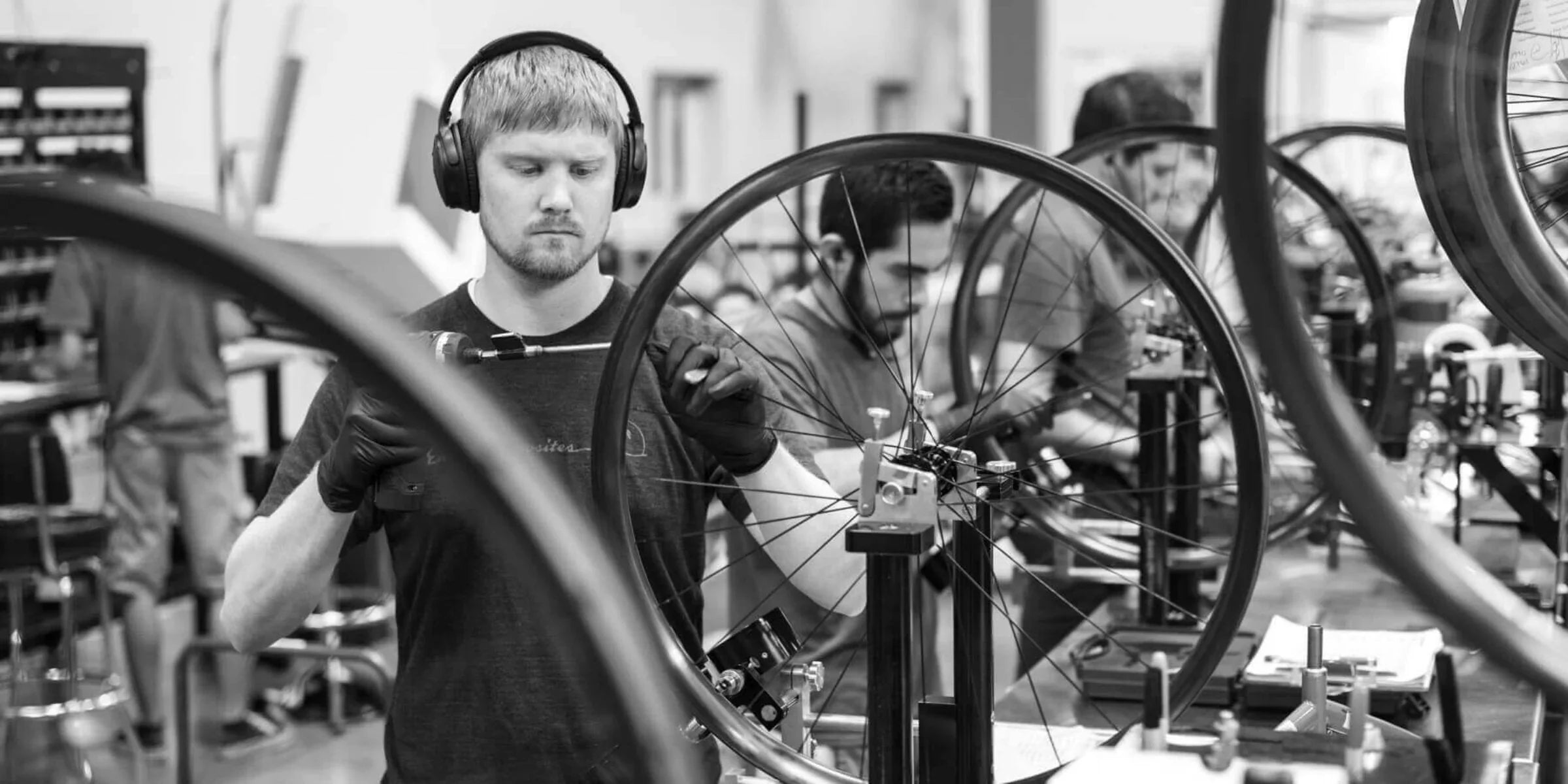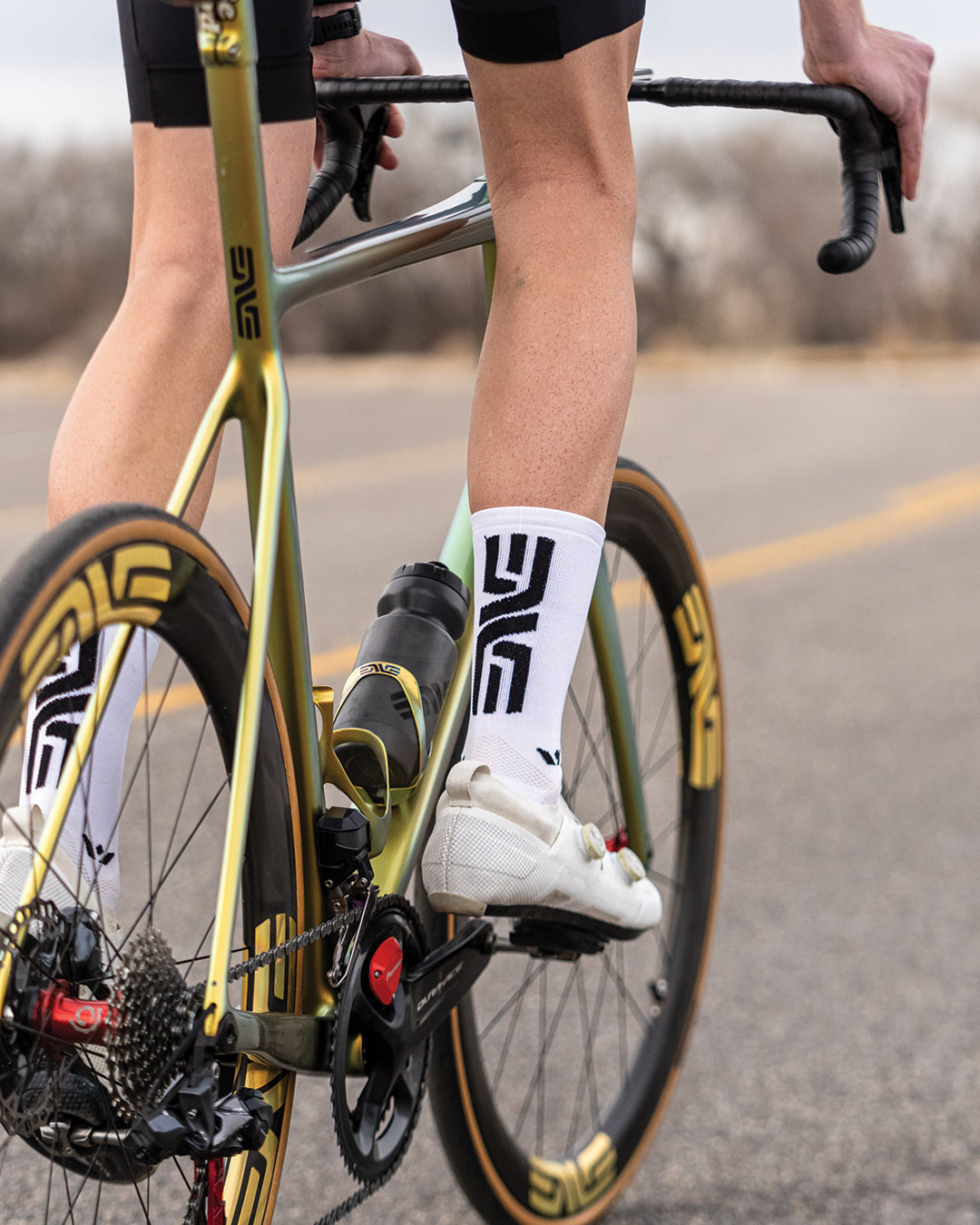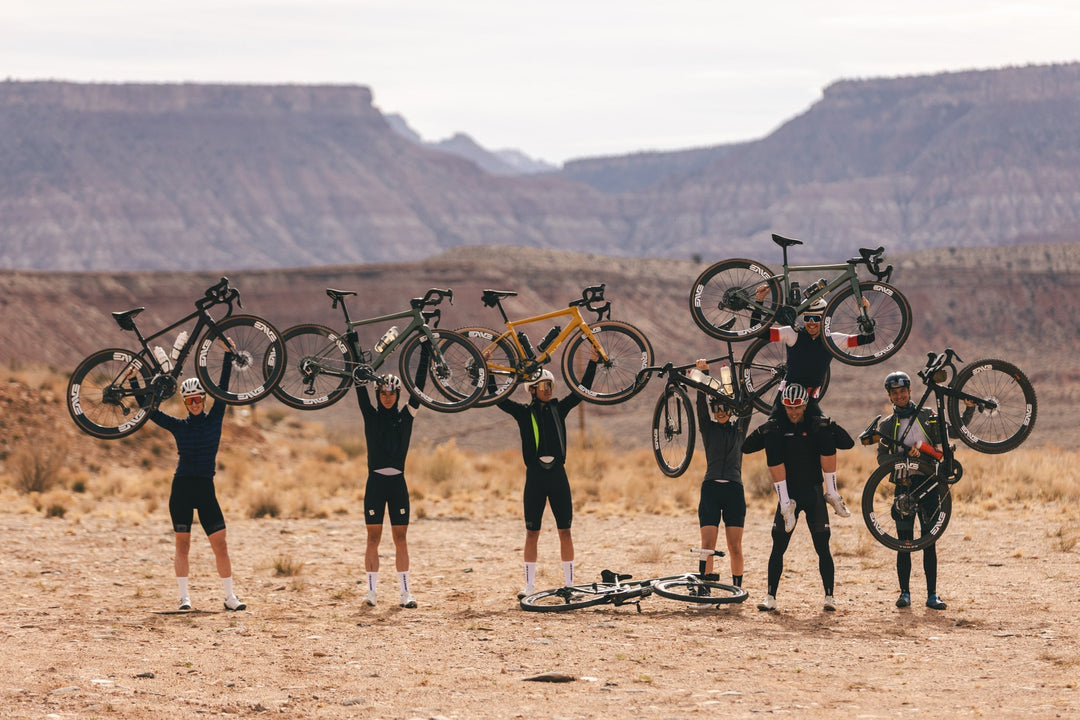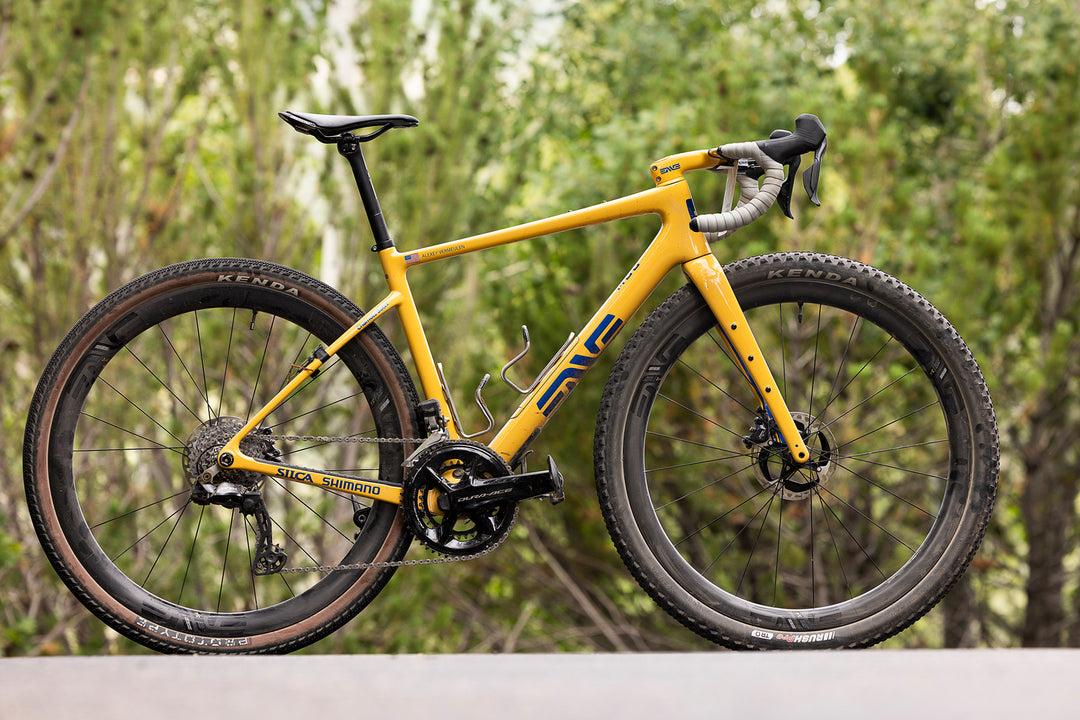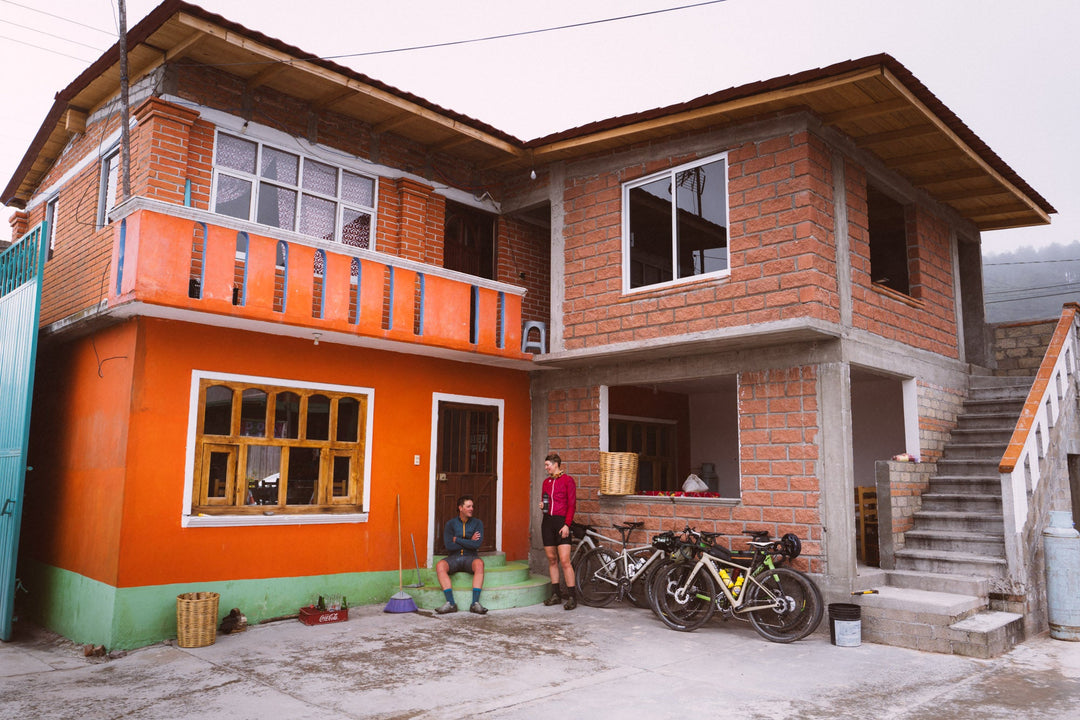WHO IS KYLE BROWN? WHY HIS STORY WILL HELP YOU LIVE
Every cyclist lives in fear of the next crash. Each time we saddle up there’s a risk of going over the bars or onto the hood of a distracted driver. We quickly push this thought away and live to ride another day. What if one day you left for a ride and bore witness to your oncoming collision in slow motion. Unable to correct course or change path, the awareness of your own mortality growing every minute, how would you react? Would you reflect upon the moments leading to this precipice; a life fully lived, a community selflessly served, a family and friends generously loved? What would you give for one more ride, and how would you prevent others from a similar fate? Would you react like Kyle Brown and take the most challenging year of your life and forge ahead undeterred by the satisfaction you’ve lived with such focus and fortitude that there’s nothing you would change? “The worst rides are the epic rides,” Kyle likes to point out. And, it’s through that logic that the lowest moments of life are ultimately transformed into the apex of our existence.
Who is Kyle Brown?
Father, husband, friend, IRONMAN, coach, Gearhead: From a distance, it would be easy to assume that Kyle’s previous life would be unrecognizable since his diagnosis with Amyotrophic Lateral Sclerosis (ALS) on July 16th, but after speaking with Kyle’s family and friends it’s quickly apparent that nothing has changed. Because of the way Kyle has and continues to live his life, there has been no slowing down, or deviation from his plan to live life to the fullest regardless of any obstacle.
The Cyclist
“He’s one of the most gifted athletes I’ve ever met…But it isn’t just the fact that he has a gift, it’s the fact that he’s incredibly disciplined.”
Nick Markosian, Kyle’s teammate
In December of 2020, Kyle noticed that he had difficulty with his speech. It wasn’t obvious to others, but after decades of listening to his body on the bicycle, he knew there was something wrong. “It really was just his speech in the beginning. That was one of the things that threw the doctors off. He was running fast and he was biking fast and his power on his bike was good and steady and he could still get off and run a 7:15 pace on a run for twelve to fourteen miles,” recounts his wife Colleen. But, “as a nurse I have learned that when a patient says something’s wrong, they’re probably right, and you’d better go check. So, we started the route talking to doctors.”
Early symptoms were explained away by lack of sleep, overtraining, and daily stress. After all, he was working full time, coaching and training for his first IRONMAN in May. “In March a doctor told us he thought it was bulbar ALS, just like that, and then ‘get out of my office’, no help, no explanation,” recounts Colleen. “It was horrible. We cried all night, and then went to a bike race the next day.” As they prepared for the worst, they hoped for the best. “He fully accepted it and was going to live his life, and that day he came up with his motto… ‘when faced with tragedy, you come alive or come undone’ and then we went to two more neurologists, three more ENTs, two more internal medicine doctors and they all said ‘no, you don’t have ALS’.” Relieved by the news of a misdiagnosis they both breathed a sigh of relief, but It wasn’t long before Colleen began to notice Kyle’s speech difficulties and the muscle twitches in his arm; harbingers of the nerve death that was occurring in his body.
It was a training session over the Fourth of July weekend that confirmed their worst fears. During a swim together Kyle began choking in the middle of Pineview reservoir. Something was very wrong. Colleen made another appointment with a neurologist and on July sixteenth Kyle was told, again, that he did in fact have ALS. For someone that has lived their entire life setting and accomplishing goals, without the need for a bucket list, Kyle and Colleen’s first destination after his diagnosis was to the top of Francis Peak to pick a location for their wedding. He proposed on the spot. They would ride to the top and become husband and wife, surrounded by close family and friends. A fitting site for a ceremony for a couple who met as student and instructor at a spin class.
The Husband
“Kyle’s got a gift of lifting people up… He’s like Superman but he doesn’t even know he’s Superman.”
colleen brown, kyle’s wife
Kyle doesn’t sell bikes, or wheels, to his customers; he sells a tangible dream. Memory machines that will carry them to places that they’ll remember for the rest of their lives, just as his bike carried him to the altar with Colleen over the summer, or the time it landed him in the hospital with hypothermia and an IV. “I was so cold. I stopped eating and drinking, so I did 200 miles on two bottles total,” he laughs. It was the only one of seven LoToJa races that Kyle can recall. The other ones? “Meh” he shrugs them off, they didn’t make him feel alive.
Kyle fell in love with cycling when he was 23 and was immediately hooked. It was a departure from his teenage days spent on a skateboard, draining local pools with friends on Sundays while the owners were away at church so he and his buddies could build ramps; ramps that the city would then come in and tear down. It was a time before skateparks existed. “I wasn’t able to practice as much as I wanted so I bought a mountain bike,” explains Kyle. The expectation was to keep his legs and cardio in shape for skating but what blossomed was a love with the freedom it provided. Six months later he dropped $150 at a pawn shop for a Raleigh Technium, figuring he’d transition to the road to put in the miles. “Now every time I get a pair of $300 pedals I think ‘my first bike was half this, what the hell is wrong with me?’” Most cyclists can relate. What followed was an ambitious eleven-mile-long ride. “I got addicted to it,” Kyle laughs. It was a feeling he dedicated years to share with others.
In retrospect, he attributes cycling to his uncanny ability to live in the moment. “As I started riding, as I looked back on memories from the year I thought ‘what do I remember?’ And it’s that ride when you get caught in the snow on the top of the mountain, and you’re shivering and you think ‘is this going to be the end?’ That’s the ride you remember; it’s not the perfect sunny day.” Kyle has had his share of sunny days but even before his diagnosis, he was aware that every day was a gift. “That might have come because as a cyclist I could get hit, people get killed, they’re gone,” he acknowledges. He watched it happen to a friend. Kyle dodged an accident but got hit by a more destructive force traveling invisibly throughout his body. “When you crash, get back up, fix your bike, fix your body, learn from it, and laugh about it next week,” he jokes. A crash becomes a story and a scar to show your friends. While Kyle’s scars are invisible, they’re now part of his narrative.
While the effects of ALS continue to progress, Kyle isn’t battling his disease sitting down; he’s hammering it from the saddle and pounding it from the pavement. Defying the odds, he completed his second IRONMAN, the 70.3 World Championship, held in St. George, Utah, on September 17th. With a press, national media attention, and an upcoming documentary set for release on Outdoor TV in January, Kyle is leveraging every platform at his disposal to raise awareness for ALS research and funding.
The Gearhead
“Kyle is also known for having an incredible work ethic and delivering a top-quality service experience to all 4,000 of his customers. He approaches his job like he does training for his next race, with full commitment to winning.”
chris purkey, head of operations at backcountry.com
Kyle’s work ethic in the office is a larger reflection of his personality. Kyle “has an unprecedented work ethic and drive to succeed…No one outworks Kyle Brown,” says Competitive Sales and Customer Manager Todd Anderson. Whether it’s a summer week of back-to-back, twelve mile, 5,000 vertical foot cycling repeats up Francis Peak, “Kyle has no interest in ‘taking it easy’” explains Chris Purkey, the head of operations at Backcountry.com. “He still comes to work because he loves what he does, the people he works with, the customers he talks to, and the industry we get to play in.” A Gearhead for Competitive Cyclist since 2013 and the top salesman for the last five years in a row, Kyle is beloved around the office where he’s known not only as the 2020 “Gearhead of the Year,” but for his comedic GIF-making talents, wicked sense of humor, integrity, and leadership. While most people in his situation would phone it in and coast at work, Kyle put in fifteen hours this Black Friday. “It was a busy day,” he recalls casually. There was work to do. More dreams to peddle. “I love getting people into the sport. I love when somebody makes that jump to say I’m going to start riding, they’re making the investment in themselves” he beams. A mile with Kyle means more than racing a stage at a Grand Tour is a sentiment expressed by his closest friends.




The Friend
“He’s just, he’s one of the most incredible humans I have ever known… There’s only one Kyle Brown and it’s unfathomable to think that like I got to know him in my lifetime. I won the lottery.”
Kris Lamb, friend of kyle
To befriend Kyle is to unknowingly commit yourself to a new family, explain those close to Kyle and Colleen. They are a package deal, equal parts energy, and ambition. “There’s nothing that I wouldn’t do for them” offers Kris, “they’re my family.” Humble and quick to dismiss platitudes, Kyle is known by those close to him as a source of inspiration both on the bike and in the community. “Back in 2018, Kyle made a proposal to us to help a local event that needed sponsorship. The event was in danger of not being held that year if they couldn’t find the funds needed. Kyle wrote up a proposal and sent it over to me and we contacted the promoter that day and wrote them a check to make it happen,” recounts Todd Anderson. Which quickly explains why, when Kyle and Colleen took their family to Hawaii in October, their cycling team pooled funds and remodeled the Brown’s entire bathroom while they were away. All of us have ‘that friend.’ The one who’s the funniest person in the room, but at the same time doesn’t need to be the center of attention. Kyle is that friend. ”We drove to Las Vegas together for like seven hours to go to team camp and it was the funniest drive of my life, I had to stop the car we were laughing so hard,” Kris remembers fondly. It’s these lifelong bonds that Kyle has forged that have aligned him so with many allies in the fight to raise awareness for ALS and race to find a cure in his lifetime.
“He’s one of those guys that has lived the life that he wants to live and he’s had the guts to do it. I think a lot of us live a fear-based life. I think we do. We conform and we do things the way we think they should be done because we’re scared,” explains Nick. Before he worked in the cycling industry Kyle owned a car dealership but left to pursue a career surrounded by cyclists and his community. A glimpse of his previous life is still visible in the rearview mirror of his Pontiac Fiero, a car that friends say perfectly reflects his unique personality. When he walked away from the dealership and a bad business deal that cost him a small fortune he was able to shrug it off. “I have no regrets about taking chances,” admits Kyle, “whether it be on the bike or in a business, I’ve done both and come up with some scars both physical and mental.” Another climb caught in the snow, another hypothermic race result.


The Coach
“Kyle is such an intricate part of the team and it’s really been the past 4 years that Kyle has taken on the role of lead CAT1 coach. I have come to learn that everyone in the cycling community knows and adores Kyle.”
Travis Remington, Ogden High MTB Team
Kyle knows how to unlock the potential in others. While he continues to work, Kyle hasn’t let his diagnosis distract him from his coaching duties, Coaxing his high schoolers to 350-mile weeks during the season. Stopping to share stories during training rides he’s quick to point out meaningful locations, like a spot in the trail where he broke up with a girlfriend so he could go to a concert. Just don’t keep him waiting; known for his dark sense of humor it’s not uncommon to hear Kyle proclaim, “hurry up, I’m dying here” met with team eye rolls and “too soon,” or accusations that other riders are trying to put him into an early grave after a hard workout. An integral part of the team, Kyle has spent the last four years coaching the Cat 1 and Cat 2 riders and shares the responsibility of lead coach with Gardner Brown. The team is important to Kyle as it critically aligns with his mission to foster a love of the sport among every new cyclist. His son Lance went through the team and Kyle marvels at how the team transformed him from a typical teenager sitting in his room playing video games, into a motivated, independent, athletic adult. And, Kyle’s ready to begin another season of coaching in the spring if his health allows. After all, he has to scout a recipient for the team’s newest award named in his honor: the “Kyle Brown – Overcoming Adversity Award” that was created this past season. “Kyle is like a parent to the kids on the team, he has been a parent to my son,” emphasizes coach Travis.




The Father
“As a father he is always a motivating factor to get out there and go for things and make it happen… I want to follow in his footsteps.”
Lance, Kyle’s son
“He got me into BMX at a young age,” recalls Lance, who also picked up skateboarding, his dad’s first love before cycling. “Even when I was terrible at skating he never pressured me to and that’s how it was when I was racing mountain bikes.” Kyle isn’t like most dads, admits Lance, “he wants me to do well but he never pressures me.” Despite his competitive nature and drive, he’s the type of father that gently expects your best but doesn’t demand it, both at home and as a coach. Lance is both following in his father’s slipstream as a fellow Gearhead at Competitive Cyclist and sophomore at the University of Utah as he maps his own route. During a family trip to Hawaii in October, Lance casually asked Kyle if he wanted to go skydiving. It wasn’t a bucket list item per se, because Kyle keeps his bucket topped off rather than waiting to fill it, so he thought about it for a moment. “He’s not obliged to fulfill anything. We were just driving around and he just looked at me and said, sure, and then laughed.” So they went skydiving right then and there. A death-defying father-son experience they both could share.
The Face of ALS
“At the time of his diagnosis, ALS is a death sentence. Nobody survives it,” Colleen concedes. Just because a disease is fatal today doesn’t mean it will be tomorrow, and that has kept Kyle and Colleen fighting for hope without a finish line in sight. Whether it’s the nurse or the athlete in Colleen, she’s dedicated herself to keeping abreast of the latest ALS medical research and legislation while Kyle keeps climbing to higher platforms in an effort to share his story; in hopes that someday no one will have to experience debilitating effects of neurodegenerative disease. Kyle is used to racing against the clock, but for the first time in his life, it keeps ticking faster than he can pedal. The average lifespan of a patient diagnosed with bulbar-onset amyotrophic lateral sclerosis is twenty-seven months, and while the cause of ALS is still unknown, doctors believe there is a genetic component as well as several risk factors including strenuous physical activity, which explains why endurance athletes like cyclists could be at a higher risk for the disease. There’s a high probability that in your lifetime ALS will affect someone you know, but there’s also a chance that doctors will discover an effective treatment in this decade. However, that probability just might depend on what you do next.
The Call to Action
At the time of this publication the senate is preparing to vote on S.1813 – Accelerating Access to Critical Therapies for ALS Act, a bill that would establish grant programs and expand early treatment options for individuals suffering from ALS. With new medications that have shown the potential to reduce the symptoms of ALS, this bill would provide funding to smaller pharmaceutical companies that offer promising treatment options and provide a foundation for new research, however, it needs full support in the Senate and when politics and healthcare mix things get complicated. “It’s the cleanest bill… it doesn’t have a bunch of other junk attached to it. There’s no reason not to support it other than; it’s money,” explains Colleen, who’s made it her mission to oversee the passage of S.1813. She pictures hope on the horizon. Currently “there’s a drug that is out of phase three…they’re trying to push it to a phase four, but it’s the first drug that’s ever reversed symptoms. People can move their arms when they’re on this drug. People can talk again when they haven’t been able to breathe.” And it’s not just ALS, “there’s actually evidence that this drug would help people… with other neurological diseases like Alzheimer’s, MS, Parkinson’s, and Huntington’s disease,” explains Colleen. But, under the current guidelines if a drug isn’t proven “effective enough in enough people we can’t have…Kyle can’t have that drug. it’s off the table.” What do these patients have to lose? Would you pass up a potential cure for a terminal illness because it might not be effective? Colleen and Kyle won’t, and they wouldn’t want you to either. Fight. Vote. Every year researchers get a little closer, but sometimes a year is one year too long, especially with a disease that can rapidly progress. “There have been fifty-three reversals” adds Colleen, “fifty-three people have reversed their ALS, and we’re going to be number fifty-four.” Let’s make that happen. Here’s your chance to save a life. Maybe it’s too late for Kyle, or perhaps it’s not. Kyle could just as easily be your spouse, father, coach, or best friend. This is Kyle’s story, but you can help write the ending.
How to Act
Call your senator. If you’re in Utah “call Senator Romney, call Mike Lee, ask them to support S.1813” encourages Colleen. ALS is a silent killer that doesn’t currently have the national media attention of cancer or AIDS, but a few more voices might be all it takes to turn the diagnosis from terminal to treatable. Politicians listen to their constituents and vote accordingly. While it’s difficult for a senator to be against funding ALS research, they’re pulled in many directions when it comes to allocating funding. Make sure your voice is heard. You don’t have to live in the United States to raise awareness; ALS is a global disease. Last month a preclinical trial got a boost in Israel and the United Kingdom has seen an increase in clinical trials, but similar regulations have hindered potential treatment options there as well.
Donate
In Colleen’s opinion “donating to the Massachusetts General Hospital Healey Platform Trial is the best way to accelerate treatments for ALS” as the money goes directly to support research and “the doctor there is probably the hardest working doctor for ALS.” Colleen points out that the problem with some of the larger ALS awareness organizations is that while they raise a significant amount of money, a large portion of donations goes to marketing and corporate managers. Just do a search for “Donate to ALS” as an example; those paid ads at the top cost money. You can also donate directly to Kyle and Colleen through their Go Fund Me page but “full disclosure, it goes to our bank account,” Colleen prefaces. It’s one direct way to support their medical costs and the other expenses that the family has incurred during this time. Jim Holland of Backcountry.com has also arranged a site through Emory Healthcare to accept donations in Kyle’s name to support the fight against ALS.
Author’s Note: In the time between writing this article and its publication, S.1813 passed the Senate and is headed to the president’s desk to be signed into law. This comes as great news for individuals living with ALS as it will fund additional research and allow for the use of resources that were previously unavailable to patients. While Kyle’s battle with ALS is not over, this bill provides hope for ALS patients and brings us one step closer to finding a cure for this devastating disease.
“This isn’t my first choice. But looking back at what I had, it’s pretty damn good.”
Kyle Brown


